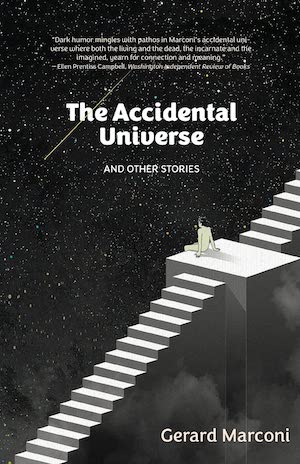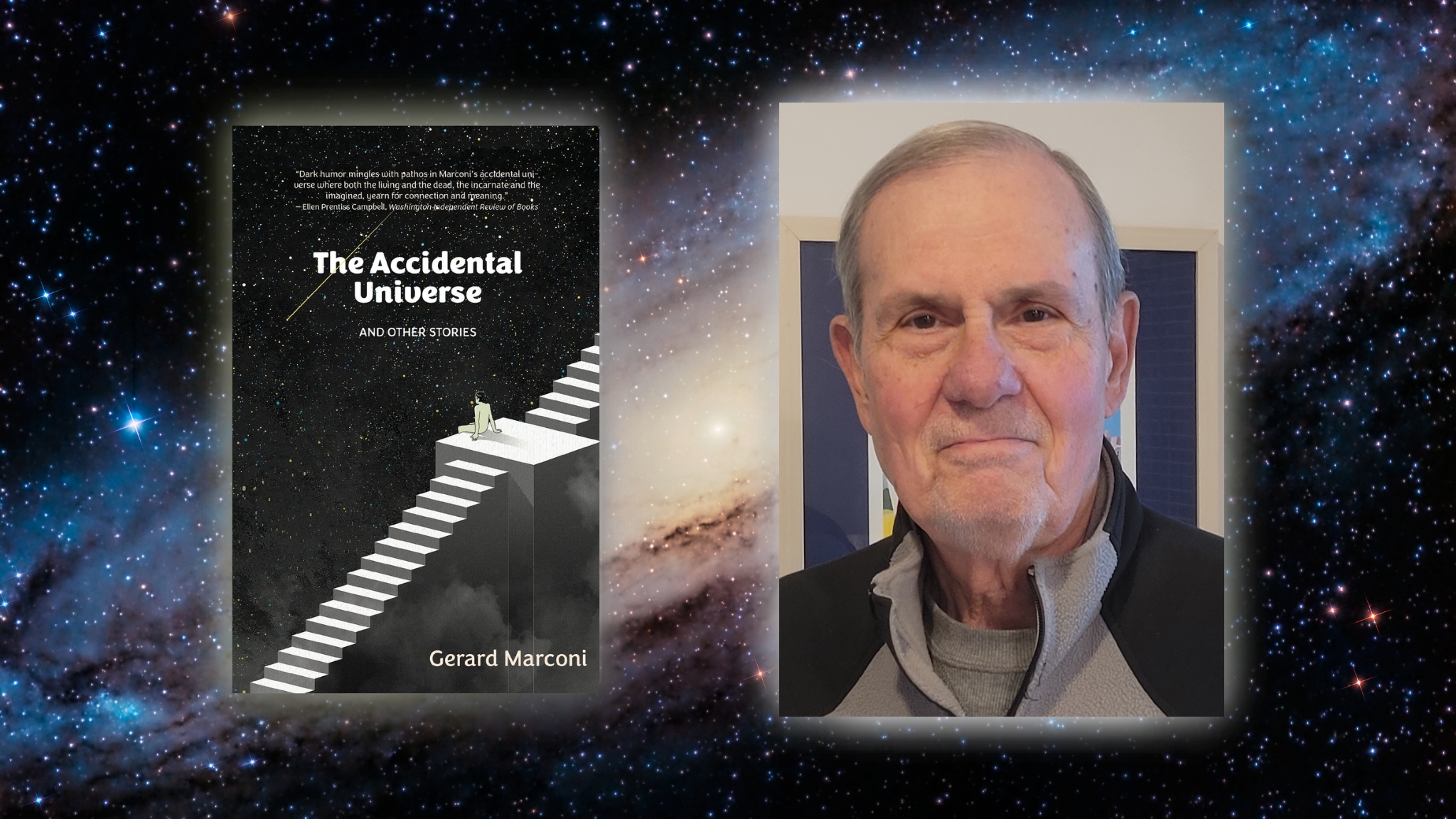The Accidental Universe and Other Stories by Gerard Marconi
He’s had a play performed at the Baltimore Playwrights Festival, received accolades for his short stories and has been featured in multiple literary journals. It’s safe to say that Gerard Marconi is no stranger to the world of writing. His newest collection, The Accidental Universe and Other Stories (Loyola College/Apprentice House), builds on that foundation to create an ambitious, sweeping work that looks at the limitlessness of our universe.
We spoke with Marconi about what real-world studies and figures in history inspired his stories, as well as how he tied so many unique narratives together into one cohesive collection.
Q: The 16 short stories in your collection are described as a “search for meaning in a chaotic universe.” What inspired you to put pen to paper and write this book?
A: I was searching for a title that would unite these diverse stories when I came across a book called The Accidental Universe: The World You Thought You Knew. Published in 2013 by Alan Lightman, a physicist at MIT, it summarized what he and many scientists now believe: namely that there are no universal laws of physics that can explain everything. It implies that a great deal of what happens in the world as well as in our personal life is due to random circumstances or unintended consequences. I realized that was the perfect theme to link the stories I had written.
Q: What are the main philosophical concepts that you explore in the book?
A: I think the philosophical question of what is truth and the notion of opposites are the main concepts I tried to explore. Life and death, good and evil, reason and emotion, choice and fate are all examples of this. Many of the characters start out believing or thinking one thing and by the end of the story they have changed their beliefs and/or behavior because of what they have experienced. Traditional religious belief is an example of this, as are traditional forms of art, our notion of artificial intelligence and the characteristics of male versus female behavior.
Q: Along with fictional characters, you also include some recognizable names from history and popular culture — Andy Warhol, Paul Cezanne and Andrew Wyeth. What led you to include real people in a fictional story?
A: A lot of fiction today includes references to factual people or incidents, and I think readers not only accept this approach but find it interesting. My background includes art history, so in the stories about visual artists I have stuck to the facts about their work but also tried to infuse their stories with interior thoughts and feelings which are fictional. The main character in “Gods and Warriors” is factual as is the description of the restored bronze statues, but his interior change at the end is a fictional conjecture of what he might have felt at that point in his life.
Q: You use an interesting technique of interconnecting different short stories with a common element — sometimes an existing piece of artwork, a literary quote or a specific motif. What was the thought process behind this?
A: In retrospect it’s easy to say that the process was an unconscious search for a unifying image or thought that would unite the stories in a thematic way. There are frequent references to death as well as references to Shakespeare and other historical figures. The back cover of the book contains the following question. “Is life a crap shoot, no matter how you live it? Or is life in the here and now a passage to the unknowable?” That quote and the title story at the end repeat this notion as the characters question their belief in God, the facts of history and the author’s credibility.
Q: Was there a particular short story that you most enjoyed writing?
A: There were two stories that I most enjoyed writing because they are set in Baltimore, where I grew up, and they speak to different generations about the themes mentioned above. “Crap Shoot” is based on my father’s experiences in the navy during World War II. He had a friend who lost a leg in the war but later entertained us kids by sticking pins into his fake leg. “A Leaf Falls” uses art, music, and poetry in telling the story of two young people trying to connect during their college years. In both stories tragedy and gentle humor relate to the theme of opposites.
Q: What do you hope readers will take away from your book?
A: I hope that readers will be moved to consider the implications of an accidental universe as suggested in the introduction to my book. We live in a universe where anything can and will happen. There are other possible universes and human life itself is a random occurrence. My stories suggest another possible conclusion about our existence in the multiverse, namely that in the face of disorder and chaos we can value each moment of life as special because it is both unpredictable and unique. We can also try to share this awareness with others, as I have by writing this book.
To contact or meet with the author, visit www.gerardmarconi.com.
 Gerard Marconi taught Humanities and Fine Arts at the college level for many years, and studied fiction writing in workshops with numerous published authors, including Roxanne Robinson, Lee K. Abbott and Tammy Greenwood.
Gerard Marconi taught Humanities and Fine Arts at the college level for many years, and studied fiction writing in workshops with numerous published authors, including Roxanne Robinson, Lee K. Abbott and Tammy Greenwood.
His play “Rapture” was performed at the Baltimore Playwrights Festival and his short stories have appeared in The Chattahoochee Review, The Tuscarora Review, The Write Launch and The Summerset Review, an online literary journal. He also won Honorable Mention in the Richard Yates Short Story Competition sponsored by Night Train magazine and was a finalist for a New Millennium Award.





